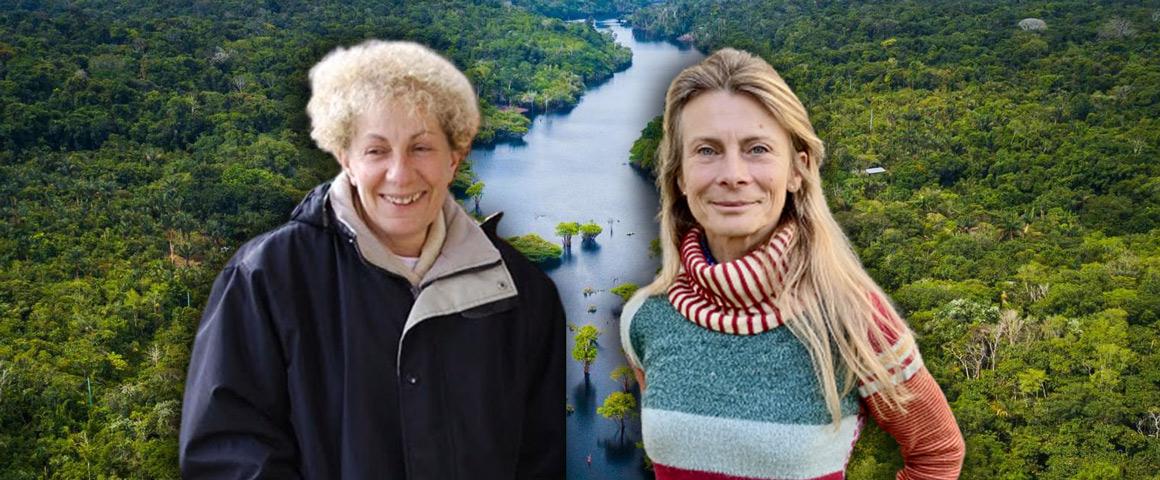Expert view 23 January 2026
- Home
- CIRAD news
- News
- The commons - Interview with Martine Antona and Sigrid Aubert
“The commons open up new possibilities”

Martine Antona, an environmental economist, and Sigrid Aubert, a legal anthropologist, both at CIRAD
How would you define the commons?
Sigrid Aubert: We understand the commons as a set of practices that connect users (human and non-human) around the use of one or several shared resources (whether natural or not), according to principles and appropriate rules that express an ideal of social and ecological justice.
Martine Antona: The commons are the expression of a desire and a fundamental path that leads people to jointly determine the conditions for using resources and the attention given to the different users with whom dependence relations are formed. The commons imply a type of cooperation projected into space and time for the maintenance of life, the renewal of social ties and their resonance in the environment. With the will to work together and faith in the idea that everyone will play their part, the commons emerge as a type of social organization.
You say the commons approach is a way of thinking that contradicts the dominant model. Why?
SA: The commons question the idea of the omnipotence of ownership, whether public or private, as the only possibility for emancipation, and as a prerequisite for any form of investment. In particular in terms of access to and use of land and its resources, the commons favour cooperation over competition. In doing so, they become a crucible for questioning our relationship with the living world, the inevitable increase in social inequalities, and the degradation of the climate and biodiversity. They provide a framework for action to instigate and implement regional projects that foster social linkages and environmental awareness.
MA: Taking account of numerous scientific studies, including the work by Elinor Ostrom, winner of the 2009 Nobel Prize in economics, we can go beyond notions that we question, such as those of ownership or systematic regulation by the market or the state. The commons open up new possibilities.
SA: Individuals do not function according to economic rationality alone. When people know one another, additional values such as solidarity or the desire for shared well-being enter into the equation. What matters is the type of social and ecological construction that can emerge around the commons.
MA: The commons illustrate possibilities for action, which can be based on the relationships that people build between themselves and with the living world (plants, animals, etc.). They are a sufficiently robust basis to generate social innovation that responds, now as before, to the social and ecological crises.
What are the other specificities of this commons approach?
SA: The notion of interdependence is central: between the users of a particular resource, but also between these users and the resource in question, knowing that each is also likely to be a resource for the other. Human and non-human groups that protect shared interests or attachments are constantly evolving to be able to adapt to the context. In this perspective, the commons emerge, live and die. "Working in common" is what matters, not the institutionalization of the group. This is often only a means of gaining recognition for it. This perspective implies a particular position for the stakeholders in a development project. This is the position that we have worked on, in particular with AFD, to specify our room for manoeuvre.
MA: The situations that characterize the commons are found in particular social groups, contexts and social and ecological systems. This is a matter of complex thinking. There is no one-size-fits-all solution, but a multitude of actors and approaches, which Elinor Ostrom referred to as polycentric governance. The idea is to consider the interactions between the components of the system being studied. It is also important to integrate uncertainty, to move away from the notion of control and to take account of the fact that the commons are a constantly evolving field. Hence the importance of adopting a multidisciplinary approach to address or accompany the commons.
JUST OUT
"Les communs : Un autre récit pour la coopération territoriale"
Developing another founding narrative for international cooperation, and thus for official development assistance, is the goal of the collective work entitled Les communs: un autre récit pour la coopération territoriale, coordinated by Sigrid Aubert and Aurélie Botta (available in French only). The result of 20 years of transdisciplinary research and reflection, this work proposes adopting a commons approach and thereby shifting the focus of technical and scientific productions to ensure well-being at the level of the territories, both human and non-human.
The framework proposed enables the different coexisting actors (researchers, associations, policymakers, etc.) to review the knowledge acquired and to mobilize it once more in favour of users’ groups, in order to address the social and ecological crises and to innovate.
Les Communs. Un autre récit pour la coopération territoriale. Sigrid Aubert and Aurélie Botta (coord.). Éditions Quæ, Nature et société collection. 272 pages



























